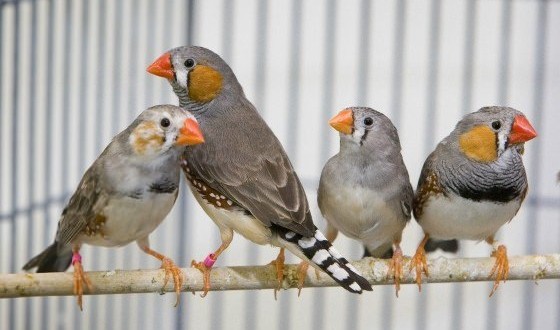Birds form relationships not unlike humans do: choosing a partner not based purely on objective aesthetic and performance standards, but on attraction and compatibility.
In a study published in PLOS Biology today, Malika Ihle, Bart Kempenaers, and Wolfgang Forstmeier from the Max Planck Institute for Ornithology described their speed-dating experiment with the bird most commonly found across central Australia.
They already share a number similar traits to humans, including mating monogamously for life and sharing parental care.
Female finches choose a mate which is specific to their preferences and there is no unanimity on which is the cutest male.
The researchers used a population of 160 and set up a speed-date with 20 females to freely choose between 20 males. Once paired off, half were allowed to stay together, while the others were rearranged “forcibly pairing them with other broken-hearted individuals”.
The couples were then left to breed, where the researchers counted the number of live offspring as well as the number and paternity of dead embryos and chicks.
Surviving chicks from chosen pairs was 37 percent higher than couples forced together. The nests of non-chosen pairs had three times as many unfertilised eggs and markedly more chicks died after hatching.
Most of the deaths happened within the first 48-hours after hatching, which is a critical time for parenting duties – non-chosen fathers were much less diligent in doing their bit.
But it wasn’t only the mating which showed stark differences – courtship differed a lot too.
“Although non-chosen males paid the same amount of attention to their mates as the chosen ones did, the non-chosen females were far less receptive to their advances, and tended to copulate less often,” the researchers say.
The non-chosen couples were significantly less “lovey dovey” than their loved-up counterparts and there was also a higher level of infidelity.
The frequency of the males looking for a new partner increased as time went on, but the females roamed less.
The study’s authors believe the birds choose their mate because they find them stimulating in a way which isn’t obvious to outsiders.
This “turns on” the female finches, which encourages successful breeding and commitment to offspring.
The authors say their study is consistent with some studies relating to love-based versus arranged marriages.
Agencies/Canadajournal
 Canada Journal – News of the World Articles and videos to bring you the biggest Canadian news stories from across the country every day
Canada Journal – News of the World Articles and videos to bring you the biggest Canadian news stories from across the country every day



